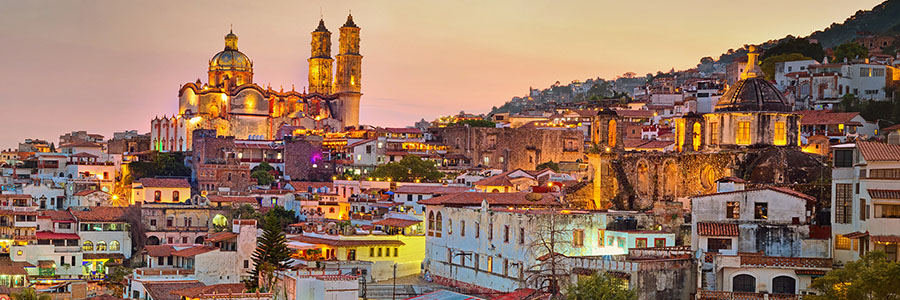Last Updated on March 13, 2025


British Columbia (B.C.) is known for its stunning landscapes and vibrant culture, and its statutory holidays reflect the province’s rich heritage and diverse traditions. These holidays, mandated by the Employment Standards Act, ensure that employees across the province can enjoy well-deserved breaks throughout the year.
These statutory holidays provide an opportunity for residents of B.C. to pause, reflect, and celebrate important cultural, historical, and social milestones. They offer a chance to connect with family and friends, participate in community events, and enjoy the natural beauty of the province.
Whether you’re scheduling your vacation or simply curious about local customs, you’ll discover all the essential details here. Let’s dive into British Columbia’s holidays and make the most of your free time!
| QUICK LINKS | |
|---|---|
| British Columbia Statutory Holidays for 2024 – 2025 | British Columbia Holidays Most Asked Questions on Google |
| Canada Public Holidays Glossary of Terms | More British Columbia Holidays FAQs |
British Columbia Statutory Holidays for 2024 – 2025
Each province in Canada, including British Columbia, designates statutory holidays to celebrate cultural and historical events. On these days, employees are entitled to a paid day off or receive premium pay if they work.
The regulations for statutory holidays in British Columbia are outlined in the Employment Standards Act.
| HOLIDAY | 2025 | 2024 | OBSERVANCE |
|---|---|---|---|
| New Year’s Day | January 1, Wed | January 1, Mon | National, Federal |
| Family Day* | February 17, Mon | February 19, Mon | Federal |
| Good Friday | April 18, Fri | Mar 29, Fri | National, Federal |
| Victoria Day* | May 19, Mon | May 20, Mon | Federal (except NS, PEI & QC) |
| Canada Day | July 1, Tue | July 1, Mon | National, Federal (except MB) |
| British Columbia Day* | August 4, Mon | August 5, Mon | Federal |
| Labour Day | September 1, Mon | September 2, Mon | National, Federal |
| National Day for Truth and Reconciliation* | September 30, Tue | September 30, Mon | Federal |
| Thanksgiving Day* | October 13, Mon | October 14, Mon | Federal (except NS & PEI) |
| Remembrance Day* | November 11, Tue | November 11, Mon | Federal |
| Christmas Day | December 25, Thu | December 25, Wed | National, Federal |
* – Federal and/or Provincial
British Columbia (BC) Stat Holidays Pay Rules
Most eligible employees have the right to take public holidays off and receive public holiday pay.
However, if an employee agrees (either electronically or in writing) to work on a public holiday, they have two options for compensation:
Regular wages plus a substitute holiday: The employee will be paid their regular wages for all hours worked on the public holiday. Additionally, they will receive another day off as a substitute holiday, for which they will be paid public holiday pay.
Public holiday pay plus premium pay: The employee will receive public holiday pay along with premium pay for all hours worked on the holiday. In this case, they will not get an additional day off, which is known as a “substitute” holiday.
Did You Know…
- that Boxing Day is not an official holiday in BC but Remembrance Day is.
- that Easter Sunday and Easter Monday are not statutory holiday in B.C. as well.
- that Starting in 2019, Family Day has been celebrated on the third Monday of February (previously, it was observed on the second Monday) in order to align with the celebration of Family Day and other holidays in other parts of Canada.

Canada Public Holidays Glossary of Terms
Canada celebrates numerous holidays throughout the year, both federal and provincial, each with its own special significance. These holidays often involve time off work and various events or activities. In this article, we will explain key terms related to holidays in Canada, such as statutory holidays, public holidays, observed holidays and more.
Full-Time Employment and Holiday Pay
Full-time employees have specific entitlements regarding holiday pay:
- Indeterminate Full-Time Workers: You are entitled to paid leave on all statutory holidays. If a holiday coincides with your scheduled day of rest, it will be moved to your next working day.
- Casual or Term Full-Time Employees: To qualify for holiday pay, you must work either the day immediately before or the day immediately after the statutory holiday.
For more detailed information, including specific terms and conditions related to your employment classification, refer to your collective agreement and other relevant employment guidelines
Leave Without Pay and Holiday Pay
If you take leave without pay for the entire day immediately before and after a statutory holiday, you will not be eligible for holiday pay. For more detailed information, including specific terms and conditions related to your employment classification, refer to your collective agreement and other relevant employment guidelines
Compressed Work Week and Holiday Pay
If you work a compressed work week, you are required to compensate for the difference between the statutory holiday hours and your compressed hours. To understand the specific practices and requirements in your department, consult with your manager or human resources
Premium Pay
Premium pay refers to the additional compensation employees receive for working under certain conditions, such as on public holidays or during overtime. Typically, premium pay is calculated at 1.5 times the employee’s regular pay rate. For example, if an employee’s regular hourly rate is $20, their premium pay rate would be $30 per hour.
This type of pay is often applied to hours worked on public holidays, ensuring that employees are fairly compensated for working during times when most people have the day off
Substitute Holiday
A substitute holiday is a day off given to employees when a public holiday falls on a non-working day, such as a weekend. This ensures that employees still receive the benefit of the holiday. The substitute holiday is typically scheduled on the next working day or another mutually agreed-upon day.
For example, if Canada Day (July 1st) falls on a Saturday, employees might get the following Monday off instead. The specific rules can vary by province and whether the employer is federally regulated
Plan Your Year with Ease! Discover all the statutory holidays in Canada for 2025, sorted by province. From New Year’s Day in January to Christmas in December, knowing these dates will help you plan your vacations, family time, and activities. Stay ahead and make the most of your time off!
British Columbia Holidays Most Asked Questions on Google
This guide provides answers to commonly questions about public holidays in British Columbia, including dates, significance, and how they are observed.
How Many Days in 2025?
In 2025, there will be 365 days, which translates to 52 weeks and 1 extra day. This year will encompass 8,760 hours, 525,600 minutes, and a whopping 31,536,000 seconds. Essentially, it’s a non-leap year where each day counts towards a complete cycle of time, marking the rhythm of life with its usual pace.
Is Remembrance Day a Stat Holiday in British Columbia?
Yes, Remembrance Day is a statutory holiday in British Columbia. It is observed on November 11th to honor the veterans of both World Wars and other conflicts1.
Is Easter Monday a Holiday in British Columbia?
No, Easter Monday is not a statutory holiday in British Columbia. While some businesses may choose to close, it is not recognized as a statutory holiday by the province.
Is Boxing Day a Stat Holiday in British Columbia?
Yes, Boxing Day (December 26th) is a statutory holiday in Ontario. Most employees are entitled to a day off with pay on this day.
Is Civic Holiday a Stat Holiday in British Columbia?
Yes, the Civic Holiday in British Columbia is known as British Columbia Day and is a statutory holiday. It is observed on the first Monday in August to celebrate the history, heritage, and culture of the province.
Is Family Day a Stat Holiday in British Columbia?
Yes, Family Day is a statutory holiday in British Columbia. It is celebrated on the third Monday in February and provides an opportunity for families to spend time together.
Is Good Friday a Stat Holiday in British Columbia?
Yes, Good Friday is a statutory holiday in British Columbia. It is observed on the Friday before Easter Sunday.
Is Victoria Day a Stat Holiday in British Columbia?
Yes, Victoria Day is a statutory holiday in British Columbia. It is celebrated on the last Monday before May 25th.
Is Thanksgiving a Stat Holiday in British Columbia?
Yes, Thanksgiving Day is a statutory holiday in British Columbia. It is observed on the second Monday in October.
Is Truth and Reconciliation Day a Stat Holiday in British Columbia?
Yes, the National Day for Truth and Reconciliation, observed on September 30th, is a statutory holiday in British Columbia. It honors the survivors of residential schools and their families.
Is Labour Day a Stat Holiday in British Columbia?
Yes, Labour Day is a statutory holiday in British Columbia. It is celebrated on the first Monday in September.

More British Columbia Holidays FAQs
Conclusion
Statutory holidays in British Columbia provide valuable opportunities to honor the province’s rich cultural and historical heritage. These designated days not only offer employees well-deserved time off or additional compensation but also foster a sense of community and shared celebration. Understanding and observing these holidays helps us appreciate the diverse traditions that make British Columbia unique.
Statistics and Information Sources:
- Government of British Columbia, Canada website
- Link: https://www2.gov.bc.ca/gov/content/employment-business/employment-standards-advice/employment-standards/statutory-holidays






